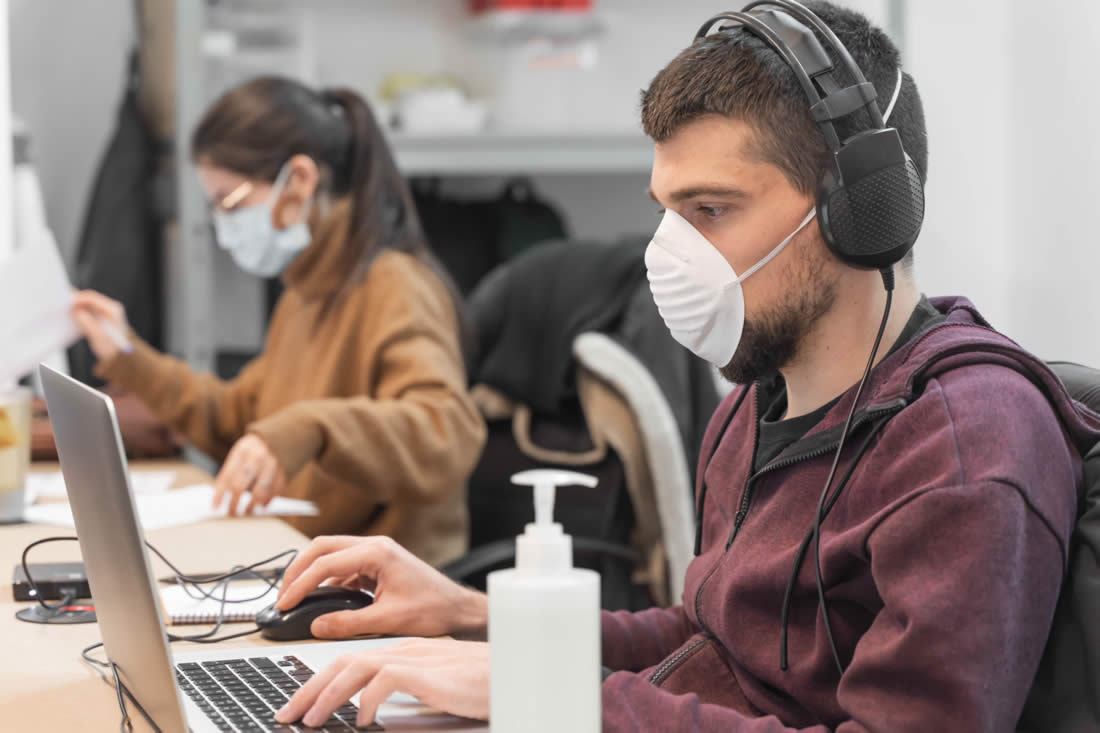Clearview® Performance Systems brings you ...  ® ... a Culture of Results & Engagement®
® ... a Culture of Results & Engagement®
Clearview® Performance Systems brings you ...  ® ... a Culture of Results & Engagement®
® ... a Culture of Results & Engagement®
Here's the next in our series of weekly managerial TIPS (Techniques, Insights, and Practical Solutions)
to help you better engage your team in the activities that lead to higher performance.
CORE Bites Issue #112
(February 16, 2021)

"A crisis is a terrible thing to waste" is attributed to Stanford economist Paul Romer and it's as accurate a statement today as it was when he first uttered the words in 2004. While he was referring, at the time, to the "crisis" of rapidly declining U.S. education levels compared to other countries, his very prescient perspective is exactly what we need to embrace today to ensure we thrive tomorrow.
[On a side note, Mr. Roemer acknowledges that he purposefully coined the phrase by modifying another well-known quote, "A mind is a terrible thing to waste." (Forest Long, 1971). Interestingly, both of these powerful viewpoints will factor into this week's CORE Bites.]
The impetus for this theme is the recognition that for the past 4-5 months (or so), I've been hearing many respected business leaders speak of the "Silver Lining" that can be found amidst the turbulence and disruption caused by COVID.
Silver Lining? As it relates to COVID? Seriously?
The truth of the matter is that while this current crisis is very close and very personal, we (the human race) have experienced many, many crises and, in the vast majority of cases, we've come out stronger and better on the other side. Some of these crises were economic; some were deadly diseases; some were wars; and ALL were thrust upon us forcing us to adapt, modify, transform, and, in some cases, let go of familiar ways of doing things.
We all know that the inspiration for Newton's Law of Universal Gravitation came when he saw an apple fall from a tree while sitting in his garden. But have you ever stopped to wonder why an acclaimed mathematician like Sir Isaac Newton would be "sitting in his garden"? It turns out that the Bubonic plague in England had forced Cambridge University to shut down and everyone was ordered to isolate at home.
Does this sound just a little bit familiar?
One of the more interesting aspects of human behavior has to do with creativity and innovation. Research shows (and practical experience supports) the fact that the human mind only unleashes creative processes when we face some sort of challenge, roadblock, or crisis. When things are going smooth (e.g., during times of prosperity), it's more difficult to engage people in change because prosperity is generally equated with stability and success—there's no need to rock the boat.
But a crisis forces a shift in mindset in an attempt to retain the aforementioned stability and success ... a crisis challenges "business as usual" thinking and produces an urgency for change, progress, and the identification of new opportunities. In essence, crisis reminds us (albeit, sometimes painfully) that the old way of doings things doesn't work anymore, and we now need to find new ways.
COVID could be remembered as months of painful and frustrating inconveniences; of not being able to leave home except for necessities like food and medicine; as something we merely endure until it's over. Or, we can make good use of it and end up with some enduring benefits. As we've heard many times before, conflict builds character ... but crisis defines it. Let's define our future starting today!
This week, start looking for ways to extract the "Silver Lining" from all that you've experienced during this past year (yes, it's now officially one year). The HVAs listed below should give you a good framework to operate from in your analyses:
I'd love to hear how these HVAs work for you!
Neil Dempster, PhD, MBA
RESULTant™ and Behavioral Engineer
"In any moment of decision, the best thing you can do is the right thing, the next best thing is the wrong thing, and the worst thing you can do is nothing."
— Theodore Roosevelt, 26th U.S. President —
